A lot of people ask: “What is the biggest mistake people make when it comes to Scrabble?”
Some will say it’s not learning enough words. Others will say it’s not finding the words you know. Others will point to not respecting your opponent enough, or focusing too much on points and not enough on other factors. These are all good points, but there’s one glaring weakness that everyone has.
The biggest mistake in Scrabble is autopiloting. Most people actually know how to play proficiently, especially in tournaments, but simply… don’t. They stop thinking. In any game, that’s a killer.
It’s one thing to point out that autopiloting is a problem: it’s quite another to fix it. Telling players to stop autopiloting does not make it stop: the only way to fix autopiloting is to fix one’s thought process to make autopiloting less prevalent.
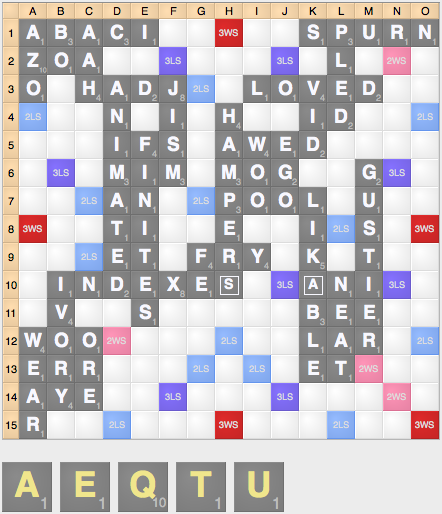
Pool: CGNTU
In this position, the highest scoring play is SUQ 8m. Most people will find this immediately, and play it rather quickly, especially if one player is significantly ahead. However, if you present this as a puzzle, and say: “Find the best play”, most tournament players will actually find the best play: QUEAN, 7a, setting up QAT next turn. This is a good example of how most players autopilot: they simply overlook the best play even though they could find it if they only paid enough attention.
So how can we stop autopiloting? To learn how to stop autopiloting, we must first realize how it starts. Autopiloting occurs when we’ve stopped paying attention: when we’ve stopped truly caring about finding the best play and are content with just finding an acceptable play.
Some of these reasons are just physical or mental, and I won’t cover all those here, but they should be obvious: you’ve been playing a lot of games, you’re tired, you’re bored, you’re frustrated, etc. are all common reasons for autopiloting that have rather obvious solutions. Just take care of yourself, keep fresh, don’t overdose on Scrabble, and you should be fine.
There are also other ways to combat autopiloting, especially during crucial games and situations. Here are some ways you can combat autopiloting:
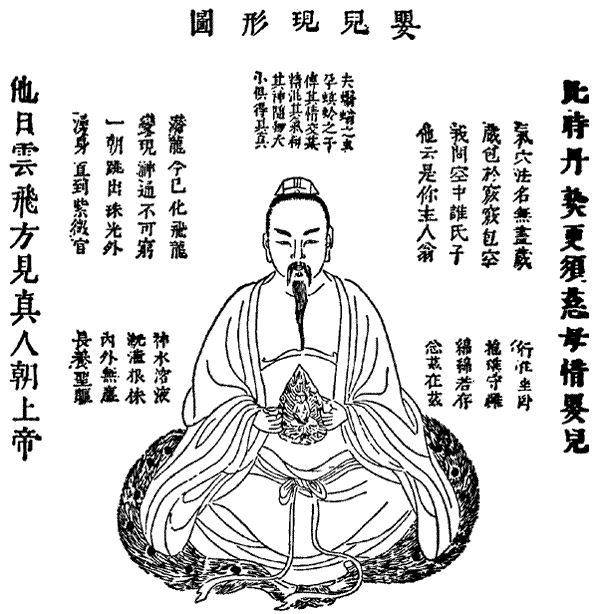
- Every so often, rededicate yourself to your craft. What this means depends on the person, but you’ve gotta find that drive within yourself to stay focus and/or find that extra gear. Techniques span from meditation to self-talk, but if you find yourself thinking about lunch or your previous turn, you’re extremely likely to fall into autopilot mode.
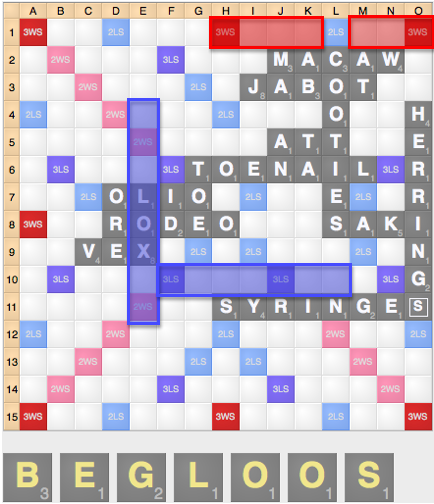
- Develop a basic quota for finding plays. When it makes sense to do so, try to find different plays that accomplish a medley of different themes, and try to look for the merits of those options. If you force yourself to find at least three different options, you’ll be far more likely to find the best option and not fall into a rut, thus avoiding autopiloting.
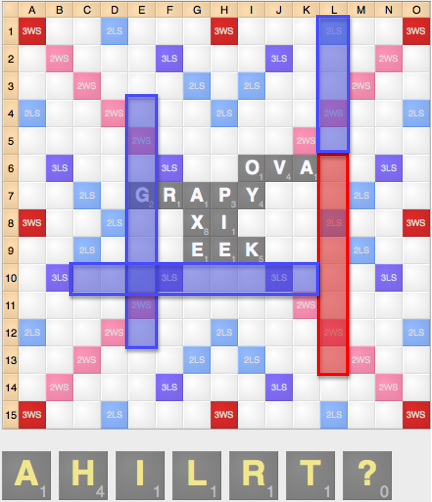
- Find a baseline play, then focus only on finding plays that are *better* than that play. Find a good baseline play, and once you’ve found a good play, focus primarily on only looking for better plays: don’t focus on looking for plays that are unlikely to be better even if they exist. Once you have found the baseline plays, make sure that any play you look for completes a goal that your baseline play does: whether it’s clearing a duplicate, scoring more points, or blocking a dangerous spot on the board.
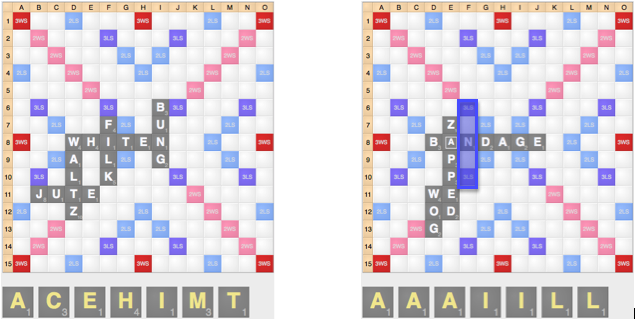
- Develop your ability to keep looking… and the ability to stop looking. One of the primary causes of autopiloting is the fruitless search of looking for a better play when none exists. Learn how to stop. If there’s a 52 point X play, take about 5 more seconds to look, and just stop. It may not help you find the best play on that specific turn, but it might save you time and energy, and make it less likely that you’ll autopilot of future turns.
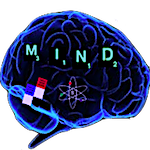
- Accept your inner autopilot. Sometimes autopiloting is okay. In the beginning of this article, we discussed a basic autopiloting position: but if you’re in the 6th game of the day and you’re already tired and you’re ahead by 120, maybe you don’t have to look for the optimal endgame route.
